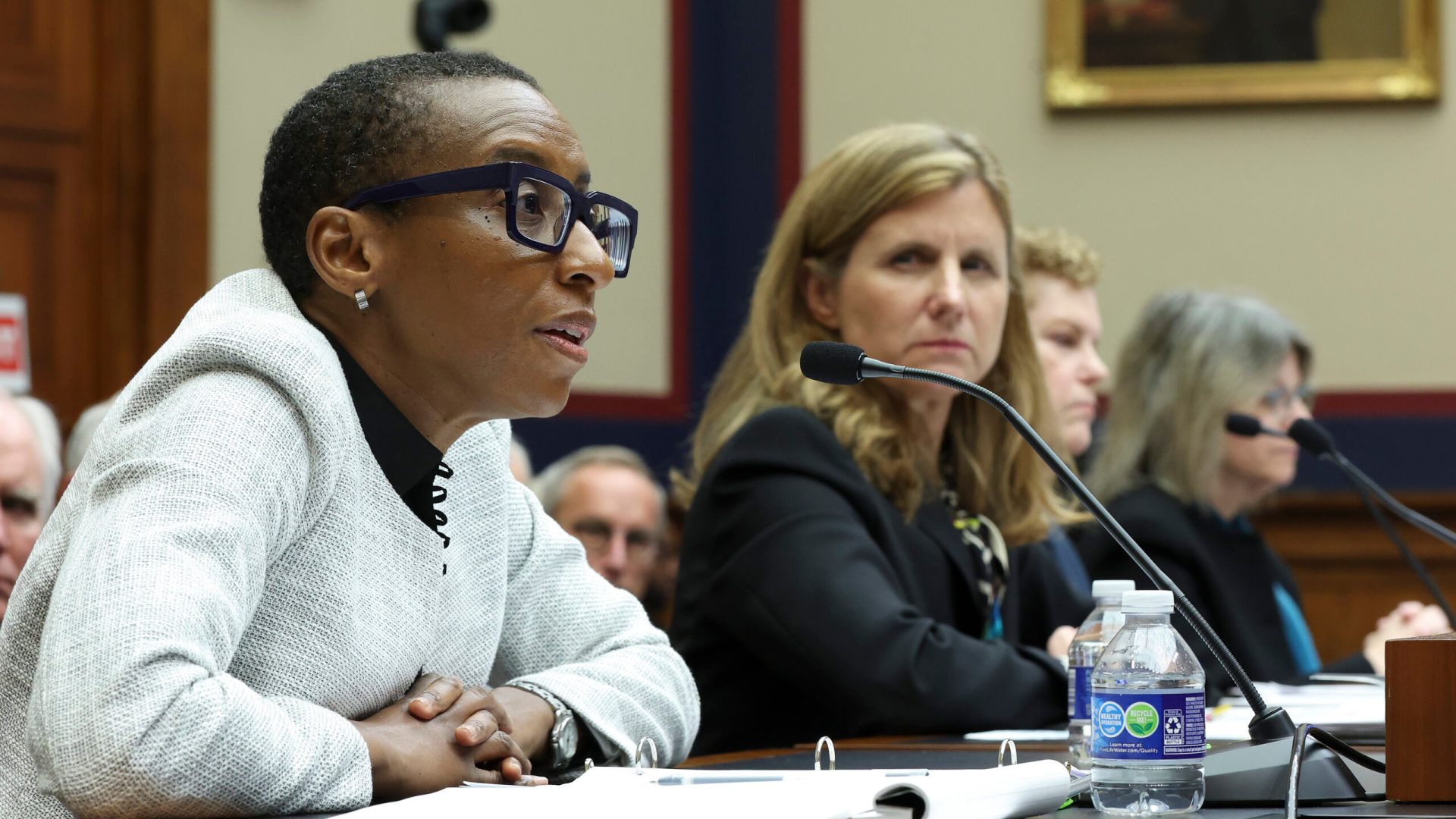
Chairwoman Foxx, Ranking Member Scott, and distinguished Members of the Committee—
My name is Claudine Gay and I am the president of Harvard University. It’s an honor to be here today, representing a community of more than 25,000 undergraduate and graduate students, more than 19,000 faculty and staff, and more than 400,000 alumni—including multiple Members of this Committee.
Thank you for calling this hearing on the critical topic of antisemitism.
Our community still mourns those brutally murdered during the Hamas terrorist attack in Israel on October 7. Words fail in the face of such depravity, the deadliest single day for the Jewish community since the horrors of the Holocaust.
In the two months since the atrocities of October 7th, and the subsequent armed conflict and humanitarian crisis in Gaza, we have seen a dramatic and deeply concerning rise in antisemitism – around the world, in the United States, and on our campuses, including my own.
I know many in our Harvard Jewish community are hurting, and experiencing grief, fear, and trauma. I have heard—from faculty, students, staff, and alumni—of incidents of intimidation and harassment. I have seen reckless and thoughtless rhetoric shared—in person and online, on campus and off. I have listened to leaders in our Jewish community who are scared and disillusioned.
At the same time, I know members of Harvard’s Muslim and Arab communities are also hurting. During these past months, the world, our nation, and our campuses have also seen a rise of incidents of Islamophobia.
During these difficult days, I have felt the bonds of our community strain.
In response, I have sought to confront hate while preserving free expression. This is difficult work, and I know that I have not always gotten it right. The free exchange of ideas is the foundation upon which Harvard is built, and safety and wellbeing are the prerequisites for engagement in our community. Without both of these things, our teaching and research mission founder.
In the past two months, our bedrock commitments have guided our efforts. We have increased security measures, expanded reporting channels, and augmented counseling and mental health, and support services; we have reiterated that speech that incites violence, threatens safety, or violates Harvard’s policies against bullying and harassment is unacceptable; we have made it clear that any behaviors that disrupt our teaching and research efforts will not be tolerated; and where these lines have been crossed, we have taken action. We have drawn on our academic expertise to create learning opportunities for our campus community. We have begun examinations of the ways in which antisemitism and other forms of hate manifest at Harvard and in American society. We have also repeatedly made clear that we at Harvard reject antisemitism and denounce any trace of it on our campus or within our community.
Antisemitism is a symptom of ignorance, and the cure for ignorance is knowledge. Harvard must model what it means to preserve free expression while combating prejudice and preserving the security of our community. We are undertaking that hard, long-term work with the attention and intensity it requires.
Once again, I thank the Committee for the opportunity to discuss this important work. I have faith today that—through thoughtful, focused, and determined effort—we will once again meet adversity and grow.
Thank you.

